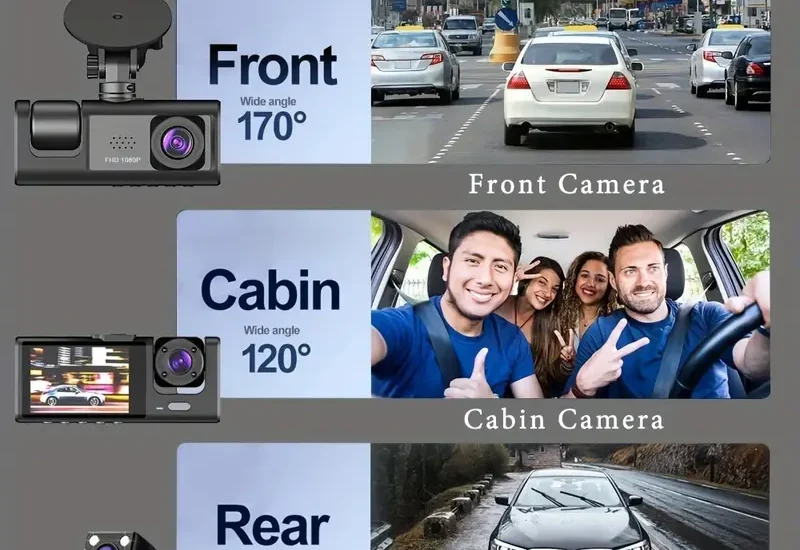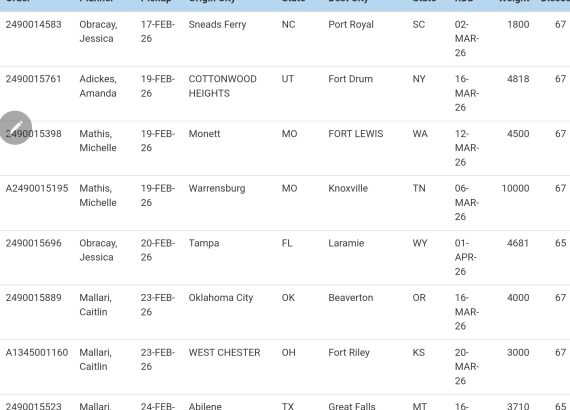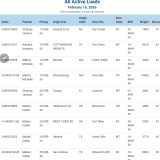Inside the Cab: Understanding the Impact of Dash Cams on Truckers’ Privacy

In recent years, the adoption of dash cams in the trucking industry has experienced significant growth. These compact, discreet cameras are installed on the dashboard or windshield of commercial vehicles, capturing footage of the road ahead and the driver’s actions. The increasing popularity of dash cams in the trucking industry can be attributed to several key factors, including technological advancements, heightened safety concerns, and the need for accountability.
Consequently, many trucking companies have made dash cams a standard practice to monitor their drivers’ behavior and ensure compliance with safety regulations. The use of dash cams in the trucking industry has also been driven by the desire to optimize fleet management and minimize liability. By providing a clear and objective record of events leading up to an accident or incident, dash cams can help trucking companies refute false claims and reduce insurance costs.
Furthermore, dash cams can be utilized to monitor driver performance, identify areas for improvement, and provide valuable training opportunities. As a result, many trucking companies have come to regard dash cams as a vital tool for enhancing safety, efficiency, and overall performance.
Privacy Concerns for Truckers: How Dash Cams Impact Their Daily Lives
Privacy Concerns and Surveillance
While dash cams offer numerous benefits for trucking companies, they also raise significant privacy concerns for truckers. The constant surveillance and recording of their actions can make truckers feel like they are under constant scrutiny, leading to feelings of anxiety, stress, and a lack of autonomy. Additionally, truckers may feel that their privacy is being violated, as dash cams capture not only their driving behavior but also their personal conversations and activities inside the cab.
Intrusion into Private Lives and Mental Well-being
This intrusion into their private lives can have a significant impact on their mental well-being and overall job satisfaction. The constant feeling of being watched can lead to feelings of unease, affecting their ability to perform their job to the best of their abilities.
Lack of Control and Distrust
Furthermore, the use of dash cams in the trucking industry raises questions about who has access to the recorded footage and how it is used. Truckers may worry that their employers or other third parties could use the footage against them in disciplinary actions or legal proceedings. This lack of control over their personal information can lead to feelings of distrust and resentment towards their employers, further exacerbating the negative impact of dash cams on their daily lives.
The Need for Clear Guidelines and Protections
As a result, it is crucial for trucking companies to address these privacy concerns and establish clear guidelines for the use of dash cams to protect their drivers’ rights and well-being. By doing so, trucking companies can ensure that the benefits of dash cams are not outweighed by the negative impact on their drivers’ privacy and well-being.
Legal and Ethical Considerations Surrounding Dash Cams in Trucking
The use of dash cams in the trucking industry raises a host of legal and ethical considerations that must be carefully navigated. From a legal standpoint, trucking companies must ensure that their use of dash cams complies with federal and state privacy laws, as well as regulations governing the recording of audio and video in commercial vehicles. Additionally, truckers must be informed about the presence of dash cams in their vehicles and given the opportunity to consent to being recorded, as required by many state laws.
Ethically, the use of dash cams in the trucking industry raises questions about the balance between safety and privacy. While dash cams can undoubtedly improve safety by monitoring driver behavior and providing valuable evidence in the event of an accident, they also encroach on truckers’ privacy and autonomy. As such, trucking companies must carefully consider the ethical implications of using dash cams and strive to find a balance that prioritizes both safety and respect for their drivers’ rights.
The use of dash cams in the trucking industry offers several benefits for truckers, including improved safety, reduced liability, and enhanced fleet management. By providing a clear record of events leading up to an accident or incident, dash cams can help exonerate truckers from false claims and protect them from liability. Additionally, dash cams can be used to monitor driver performance, identify areas for improvement, and provide valuable training opportunities.
As a result, many truckers may appreciate the potential for professional development and increased accountability that dash cams offer. However, the use of dash cams also presents several drawbacks for truckers, including concerns about privacy, autonomy, and mental well-being. The constant surveillance and recording of their actions can make truckers feel like they are under constant scrutiny, leading to feelings of anxiety, stress, and a lack of autonomy.
Additionally, truckers may feel that their privacy is being violated, as dash cams capture not only their driving behavior but also their personal conversations and activities inside the cab. This intrusion into their private lives can have a significant impact on their mental well-being and overall job satisfaction.
To address the privacy concerns surrounding the use of dash cams in the trucking industry, it is crucial for trucking companies to establish clear best practices and guidelines for their use. This includes informing truckers about the presence of dash cams in their vehicles and obtaining their consent to be recorded, as required by many state laws. Additionally, trucking companies should establish clear policies regarding who has access to the recorded footage and how it is used, ensuring that it is only accessed for legitimate purposes such as safety monitoring and training.
Furthermore, trucking companies should provide training and support for their drivers to help them understand the purpose and benefits of dash cams, as well as how to navigate the potential privacy concerns associated with their use. By fostering open communication and transparency around the use of dash cams, trucking companies can help alleviate some of the anxieties and concerns that truckers may have about being constantly monitored. Ultimately, by implementing best practices and guidelines for the use of dash cams, trucking companies can strike a balance between safety and privacy that respects their drivers’ rights and well-being.
The Psychological Impact of Dash Cams on Truckers’ Mental Well-being
The Feeling of Constant Scrutiny
The use of dash cams in the trucking industry can have a profound effect on truckers’ mental well-being, leading to feelings of anxiety, stress, and a lack of autonomy. The constant surveillance and recording of their actions can make truckers feel like they are under constant scrutiny, leading to heightened levels of stress and anxiety.
Invasion of Privacy
Dash cams not only capture truckers’ driving behavior but also their personal conversations and activities inside the cab, leading to feelings of privacy violation. This intrusion into their private lives can have a significant impact on their mental well-being and overall job satisfaction.
Lack of Control and Trust
The lack of control over their personal information captured by dash cams can lead to feelings of distrust and resentment towards their employers. Truckers may worry that their employers or other third parties could use the footage against them in disciplinary actions or legal proceedings. This lack of control over their personal information can further exacerbate feelings of anxiety and stress, impacting their overall mental well-being.
Balancing Safety and Privacy: Finding a Middle Ground with Dash Cams in Trucking
Ultimately, finding a middle ground between safety and privacy is crucial when it comes to the use of dash cams in the trucking industry. While dash cams offer numerous benefits for improving safety and reducing liability, they also raise significant privacy concerns for truckers that must be carefully navigated. By establishing clear best practices and guidelines for their use, trucking companies can strike a balance that prioritizes both safety and respect for their drivers’ rights.
This includes informing truckers about the presence of dash cams in their vehicles and obtaining their consent to be recorded, as required by many state laws. Additionally, trucking companies should establish clear policies regarding who has access to the recorded footage and how it is used, ensuring that it is only accessed for legitimate purposes such as safety monitoring and training. By fostering open communication and transparency around the use of dash cams, trucking companies can help alleviate some of the anxieties and concerns that truckers may have about being constantly monitored.
In conclusion, while the use of dash cams in the trucking industry offers numerous benefits for improving safety and reducing liability, it also raises significant privacy concerns for truckers that must be carefully navigated. By establishing clear best practices and guidelines for their use, trucking companies can strike a balance that prioritizes both safety and respect for their drivers’ rights. Ultimately, finding a middle ground between safety and privacy is crucial when it comes to the use of dash cams in the trucking industry.
By fostering open communication and transparency around the use of dash cams, trucking companies can help alleviate some of the anxieties and concerns that truckers may have about being constantly monitored while ensuring that they are able to perform their jobs effectively without feeling like their privacy is being violated.
Remember truck drivers it is your right to choose if you want a trucking company to monitor your conversations with family while on your blue tooth or perhaps paying a bill over the phone.
without trucks America stops.









